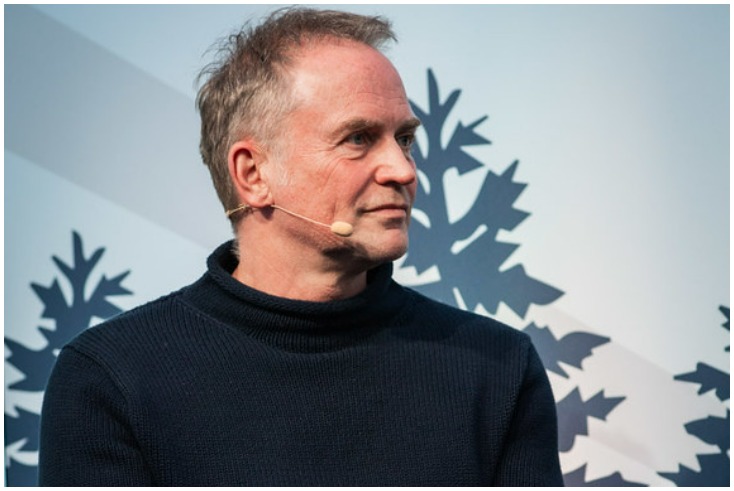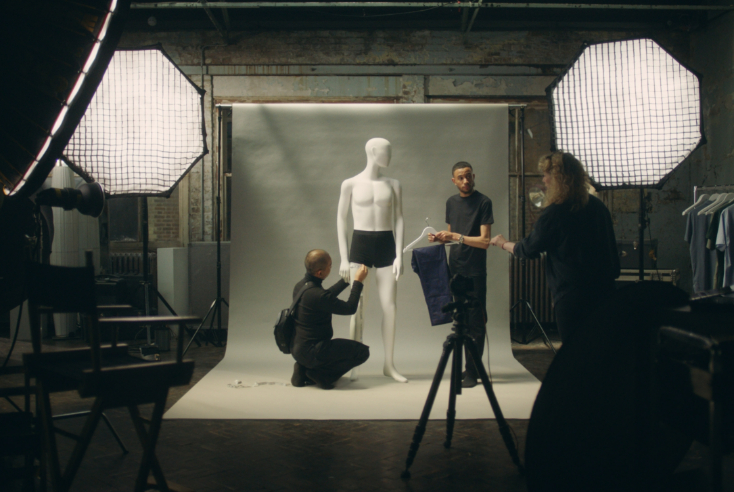Despite the downturn, UK TV's major broadcasters remain bullish about airtime-for-equity deals

Feature
Despite the capital markets getting ‘tougher’, the UK’s major TV broadcasters are continuing to bet on an array of start-ups with media-for-equity deals.
The last few years have been a buoyant market for start-ups, with historically low interest rates and investor enthusiasm for tech-driven services driving an investment boom in the US and Europe.
It provided fertile ground for the UK’s biggest TV broadcasters to launch their own “airtime-for-equity schemes” in recent years, in which they gave start-ups the chance to advertise on TV for the first time in exchange for a minority stake in the business.
Channel 4 Ventures first launched as the Commercial Growth Fund in 2015, UKTV Ventures in 2018 and ITV AdVentures in 2021.
But now inflation is going up, interest rates are rising, recession is being forecast. The market’s enthusiasm for Big Tech seems to have waned, too, as their recently-announced quarterly earnings signalled a downturn in the digital ad market.
And yet Vinay Solanki, head of Channel 4 Ventures, remains bullish. Solanki believes the media-for-equity model is in a position for “better structural growth” in the coming years because it has “a unique lens” on the equity business compared to other investors, and there is a role for specialist capital who can also provide marketing to consumer businesses.

Solanki (pictured, above) points to there being a lack of specialist consumer investors and a “surprisingly large” gap in knowledge about consumer marketing and awareness marketing in the investment community.
Investors in Europe also broadly operate in a B2B market, which limits the size and scale of potential investors to take consumer companies to the next phase, which is both a challenge and an opportunity as media-for-equity “fills part of that gap”, he added.
Kelly Williams, managing director of ITV Commercial, predicts the next few years would be a great opportunity for the airtime-for-equity market to become “stronger”, as capital markets get “tougher” and venture capital firms become “choosier”.
Combine this with a drop in the global valuations for digital brands, and you start to see a world in which start-ups look at other channels aside from paid search and social, like TV and other above-the-line media, to advertise.
Brendan Kilcawley, head of commercial at UKTV Ventures, forms a link between changes to targeting in digital advertising, like how Apple has restricted app tracking on its iPhone software iOS, and how more scale-ups will look at TV to market themselves.
Both Williams and Kilcawley have seen trends in the market such as a rising number of sustainability start-ups beginning to market their products.
Channel 4 Ventures has done analysis of a few hundred potential companies, and said up to £100m a year could go in to those businesses.
While Solanki thought this could be a “leap too far” in terms of how quickly the airtime-for-equity model could develop, it still leaves “room for growth” for airtime-for-equity and around an £80m “gap” based on current average deals and size of the market in the UK.
Media for equity: how the UK market’s TV players compare
| Channel 4 Ventures | ITV AdVentures | UKTV Ventures | |
| Founded | 2015 (as Commercial Growth Fund and then renamed) | 2021 | 2018 |
| Number of investments to date | 27 | 5 | 8 |
| Total companies exited | 4 | 0 | 0 |
| Broad airtime investment range per company | £1m- £5m | £2- £2.5m | £500,000 – £2m |
‘Educating’ VC firms and start-up founders
Since the sizeable cash commitment to TV advertising is the main barrier to entry for new advertisers, media-for-equity schemes’ proposition is designed to “level the playing field” for start-ups and scale-ups to compete with more established brands already advertising on TV.
The ultimate idea is: the start-ups will have accelerated growth thanks to the audience scale achieved through TV, and come back to the medium at a later stage to buy advertising.
As a result of this, UKTV and ITV see venture capital firms as “friends” rather than competitors, since these firms will help remove this cash barrier to entry.
Kilcawley (pictured, below) describes this is an “education piece” in itself to venture capital funds, emphasising to them that there is a “synergy” and “fit” when both sides invest, rather than one going in alone.

It is a common criteria for broadcasters’ media-equity-schemes that the business in question has other financial backing and is also new to TV advertising.
However, all broadcaster execs told The Media Leader they see a widespread misconception among founders that TV is not as effective in terms of outcomes as digital marketing. A common complaint is that TV is a “wasteful” marketing medium.
Start-ups typically are proficient on marketing in digital and social channels, but tend to not have marketing teams accustomed to the world of TV buying.
Solanki said Channel 4 Ventures has been in hundreds of conversations with companies which end up marketing on one or two channels “broadly not working”, and typically sees them “overlook” the role of awareness marketing.
He noted with some companies that had advertised on TV previously, they would say it had not worked as they had tested it on a budget that had not activated brand impacts, so Channel 4 Ventures says you normally need to be spending “a significant amount” which is why their minimum investment is normally £1m.
Kilcawley revealed that a large part of his job is educating founders and CEOs on how the TV advertising market works; how it is traded, measured, sold and the benefits and expectations associated with a campaign. He highlighted that with TV a campaign does not pay for people outside the buying audience who see the ad, which works out as millions of people effectively seeing the ad for free.
This was echoed by Williams (pictured, below), who said the digitally native companies ITV AdVentures had invested in so far were more accustomed to outcome-based “performance marketing” on paid search and social, so switching to TV has been an adjustment but had “really positive” outcomes showcasing the power of TV advertising, especially with data they do not normally have access to with other advertisers.

Williams said: “Being completely frank there are some people within those businesses who were really sceptical about it, so it’s just really nice to see that scepticism just completely evaporate.”
TV advertising is more “nuanced” and “a slightly slower burn”, and Williams revealed that when the business owners see the data from their campaigns they feel like they have discovered “the secret sauce of advertising” as they see continued growth and benefits weeks and weeks after a campaign has finished.
UKTV Ventures: sector agnostic
Kilcawley said the main aim of UKTV’s airtime-for-equity scheme, owned by BBC Studios, is to grow the TV advertising market.
It has £8m of premium advertising to invest annually in UK start-up and scale-up businesses and the scheme’s target is to invest in four to five direct-to-consumer brands per year.
The criteria are that the business in question is operationally ready to scale, and while each deal is different, typically the broadcaster exchanges £1m- £1.5m worth of airtime for a minority stake of 20% or less in the business.
UKTV Ventures has looked at deals for as little as £500,000 and as much as £3m and the size of the deal will depend if a brand needs to have an “always on” or seasonal and time-limited advertising approach.
UKTV’s approach is “sector agnostic”, but there are criteria that UKTV Ventures looks for such as companies operating in a sizeable sector, products and services with high growth potential whose key market is the UK, pre-series A and up to series B in terms of funding and revenue-generating, not necessarily profit-generating.
So far UKTV has made eight investments, the latest of which was in sustainability brand KinKind, and a deal offers companies media across UKTV’s seven linear channels and video-on-demand service UKTV Play, which have a combined reach of 26 million adults monthly according to their proprietary viewing figures.
Other investments include WeAre8, Time-To-Find, Beelivery, Pitpat, ClickMechanic, and Hopster (campaign still, pictured, main image).
A key challenge to these sorts of deals is seeing “a clear exit”, or a return on investment within a specific timeframe, but UKTV Ventures tends to prioritise business longevity or a medium return on investment compared to traditional VC funds as they have investment cycles with a pressure to exist an investment in a certain timeline, whereas UKTV’s investment is replenished annually.
ITV AdVentures: trying to build value
ITV AdVentures, headed up by Niko Waesche, has a goal is to build value and diversify revenue streams through “a strong portfolio of growing businesses”.
It has so far made five deals but has had to “park” one as both parties agreed it was “not the right time to advertise”. The company in question, ismybillfair, compared energy bill prices with providers to ensure “fairer deals for loyal customers”.
However, What3words, the location service, Spoke, a men’s fashion brand (pictured, below), and Feel, a vegan vitamins company, (pictured, main image) have all taken ITV up on further media, proving they see advertising on ITV’s media-for-equity initiative as “a growth accelerator”, Williams highlighted.

ITV Adventures’ criteria is that companies backed by venture capitalists which helps with ITV’s due diligence, are mature enough to be ready for the demand from a TV campaign, and are UK digital-first businesses.
Broadly, and it changes for each deal, ITV gives £2- £2.5m worth of airtime over a specific period for a passive minority stake in the businesses.
Williams said the challenge was “picking winners”, adding that is why ITV is keen to build a broad portfolio, like a normal venture capitalist would.
ITV Adventures now has “a significant pipeline of potentials” and Williams said ITV was in “serious discussions” with four more companies, which are mostly sourced through the venture capitalist community.
For ITV there are two ways to a successful exit, either selling its whole portfolio of business to a VC firm at a later date or an individual company selling in some capacity.
Channel 4 Ventures: broad diversity lens
Channel 4 Ventures is the UK’s largest media-for-equity fund and, it says, aims to attract new advertisers to TV and “stimulate” existing sectors.
It typically invests a minimum of £1m for a stake of 5% or less in the business or convertible loan instruments.
Over the last 12 to 18 months, Solanki disclosed the average deal size had been a bit higher at £2m.
During 2021, the Channel 4 Corporation invested a further £19m in Channel 4 Ventures, compared to £3m in 2020.
In its latest annual report, Channel 4 Ventures revealed its fund has 22 active equity investments that had a balance sheet value of £30m at 31 December 2021, contrasted to £16m in 2020.
The fund made seven new investments in 2021, including Boomin, a challenger property portal (video, below), Strike, an estate agent that sells houses for free, Clim8, an ethical investment app, and Maxwellia, a drug-switching company that spearheaded the campaign to switch the progesterone-only contraceptive pill from prescription-only to available over the counter.
Solanki emphasised Channel 4 Ventures had made “a concerted effort” to invest in a footprint outside of London and also looks at investments through a “really broad diversity lens”.
He also revealed they wanted to be “more proactive” and “apply additional effort” in this area in future to tie in with the heritage of Channel 4’s values over the last 40 years.
A deal could include benchmarked media to leading UK agencies, media planning support, potential follow-on investments at a later stage and access to its network.
The scheme’s criteria are for “high-growth consumer brands” that have potential to become a UK household name, are pre-series A to pre-IPO, are new to TV or run small campaigns previously and fit with Channel 4’s “broader values”.
In a statement, Channel 4 Ventures confirmed that over the next year it will be building on its “core investment themes”; investing in emerging or outright category leaders in digital consumer, from fintech to mass-market consumer propositions, evaluating non-digital consumer verticals like food or FMCG brands, alongside a focus on scalable regional ideas and disruptive new companies that fit strongly with the Channel 4 brand.
Channel 4 Ventures has four companies that have exited its scheme; Drover, Pinterest, Eve, and Readly.
What about Sky and Channel 5?
Rather than an airtime-for-equity fund, Sky Media has a cross-functional Direct to Scale team which aims to help fast-growing direct to consumer and performance-led brands with their next stage of growth.
The team consults with a brand to find “the best media solution” and creative strategy using Sky Media’s portfolio of advertising products and channels in line with their budget, objectives and scale.
Sky Direct To Scale brands works across linear, video-on-demand, digital and social, as well as addressable TV. and uses data-driven planning tools including Web Attribution, AdVance and Shoppable to focus on providing a brand with the most efficient and effective media strategy to scale.
It collaborates with sister company NBCUniversal, giving brands it works with international reach to scale in the UK, ROI, US and European markets including Italy, Germany and Austria.
Sky Media reported these have a combined monthly reach of 700 million across more than 150 countries.
Channel 5 used to have a media-for-equity setup investing in internet companies in the early 2000s, including cheekymonkey.com, thefirstresort.com, and online retailer Firebox, but no longer has such a scheme.



